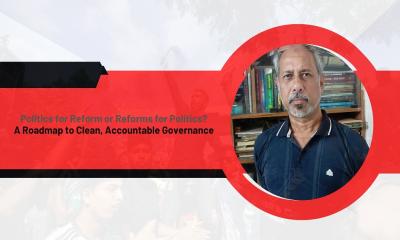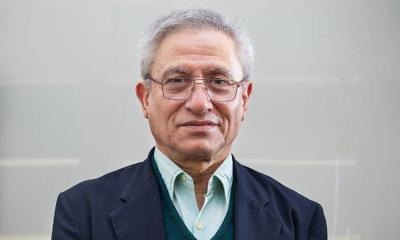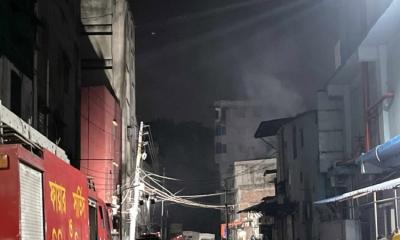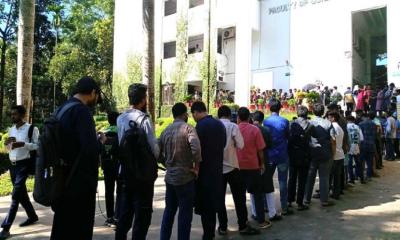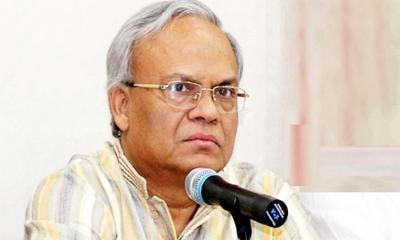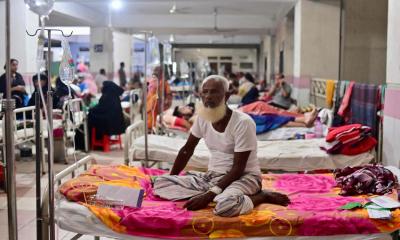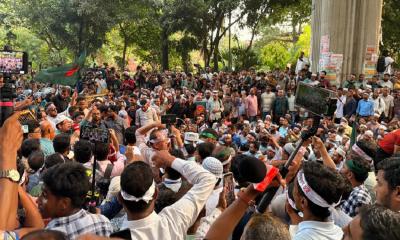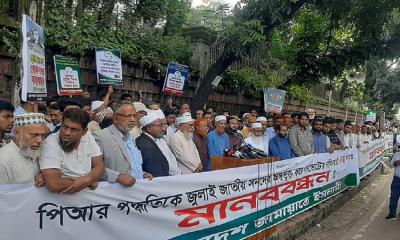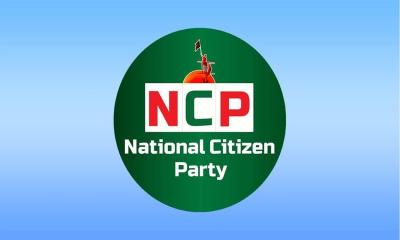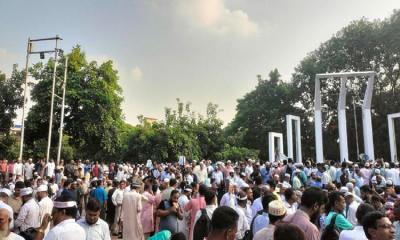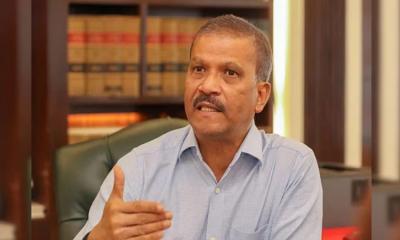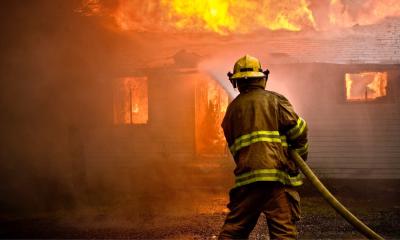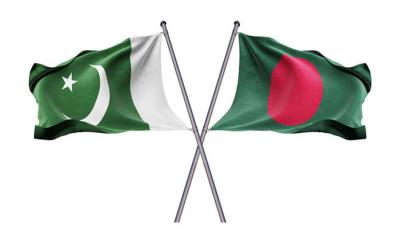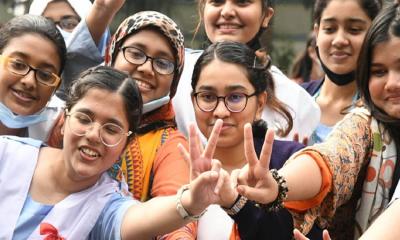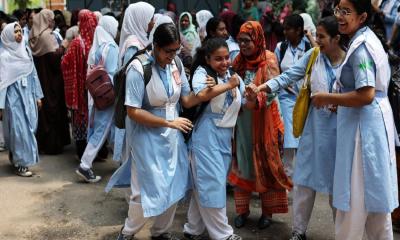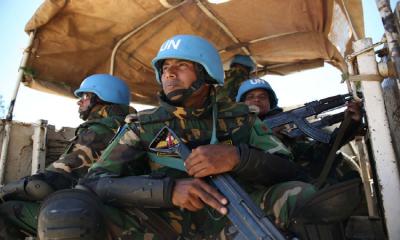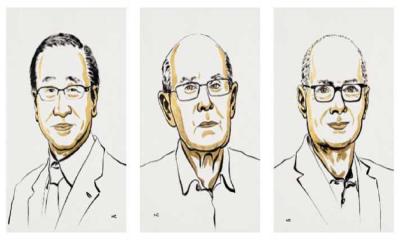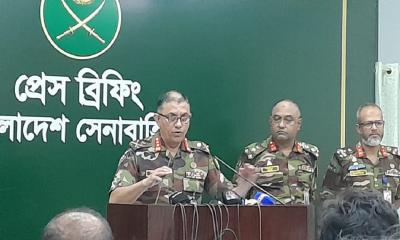That government is the best which governs the least. With debate glued to the authority of this phrase, it is often credited to Henry David Thoreau. Leaving this debate aside, I want to concentrate on the text in relation to the case of the current shutdown situation in Bangladesh.
We are going through the third wave of the catastrophe. An apparently serious crisis has engulfed the air of governmentality; precisely on deciding whether the shutdown should continue or not. It is predictable that this debate on lockdown is not going to leave us soon. This article is an attempt to dismantle the crisis of governmentality in face of the third wave of the epidemic.
In essence, shutdown or lockdown is an act of enforcement. That means it is about governing hard. From a perspective of governmentality, governing hard should be the last option a good government should resort to. That very government is the best when it governs the least. Excess governing is bound to bring private interest into public action. Think of a father who controls everything of a child. A father becomes a despot when he imposes his thoughts or dreams on the child. Excessiveness comes from that personal and private wanton desire. This pandemic should not render the government an opportunity of legitimising enforcement when other options in disposal haven't been explored or used properly. I'll try to argue that governing least is the best solution to deal with the problem of pandemic and governing hard is an indicator of failure or vested interest.

One might argue that lockdown is different in this context because it is not the government itself but the health experts are pleading for it. Here, I must contend that blindly following the expert opinion without even knowing the boundary of expertise and how to make use of them makes the act of shutting the mobility of the country down a sheer act of despotism.
Well, before going any further, let's have a look at the status of the public health experts. A public health expert has the expertise of the nature of the disease, its spread, and its statistical prediction. They can tell us that the virus spreads through human transmission. A distancing between them or filtering their breathing with a mask will slow down spread of the virus. But how to maintain this distance or encourage people to wear masks is not their prerogative. This is precisely the right of the politicians who understand the people and are capable of leading them through. Politicians are the organic cultural experts in the true sense of the concept. Hence, with the help of public health experts, it is the politician who should set the policy and guide the folks. But to our utter surprise in the last one and half year of the pandemic, the politicians are mostly missing from the scenario. Even the government subsidiary projects have been handed over to the bureaucrats.
This pandemic is truly a multidisciplinary subject. In the face of it, the government's first duty is to draw the boundary of expertise and then only combine it together. In the mass vaccination process, the government prioritised people over 35 years of age. It is justified by the health experts as these people are more vulnerable to the virus. But I think a calculation was missing there. Who bring the virus home? Mostly the younger people go out and bring the virus home for elder members in the family. This is not to suggest that younger people should be vaccinated first but to show that the cultural calculation or opinion of the cultural experts was missing there. This is the problem of not drawing the boundary of expertise.
In an online discussion philosopher Syed Nizar, posed a question to us- who is the expert; expert with previous knowledge or who is currently observing and researching the situation? This research initiative is also missing from the whole management process.
How to encourage people to wear masks or make them understand that coronavirus is real is not the duty of the doctors but the duty of the leaders of the community. In this context, they are the experts.
Now, if we agree that how to manage people in the pandemic situation is the leader's prerogative then governmentality must come into scrutiny.
Let me ask a question on the linguistic interpretation of the pandemic. What is the status of the third wave shutdown situation; is it a crisis? I oppose that this is not a crisis. A crisis is a situation where a decision is postponed or not a possibility at all. Think of a man who wants the child and mother’s life to the same degree but the doctor says, only one can be saved. This person then is in crisis. But when you know your target then it is nothing but a problem. We want to safeguard the community from the disease. Hence, the target is fixed. Then the calculation comes. We have three possible solutions to the problem which are, in turn, interconnected in nature. Based on priority, the first one is mass vaccination, the second one is encouraging people to wear masks and the third one is maintaining social distancing. Here, the act of lockdown falls under social distancing and again it comes third in priority. In case of social distancing, priority could have been given to blocking the border first since Bangladesh is not the epicentre of the delta variant. As the government failed to do this, identifying and isolating the affected people could have been prioritised. As we have failed time and again, then we are left with nothing but an option of complete shutdown, which is, in turn, passively admitting that we are in a complete failure tackling the situation.

Pushing the vaccine on arms is in slow progress then are we left with a shutdown only? Not so. Wearing masks is the other healthy option to take before locking people down. Materialising shutdown with law enforcing agencies signifies some grave concern. It simply means that the government is in no friendly terms with people where a press note could suffice.
There might be other factors too like illiteracy, religious superstition and others. But these factors only strengthen the claim that the government has a great distance with the people it governs.
Lockdown means going against the tide. It may sound heroic but the tactic lands in heavy loss of energy with a fistful result. I think the government should try to regulate rather than enforcing anything. Which means it should govern the least.
People do not obey the law. They are hopeless creatures. These claims fit well in the tongue of the exhausted despot but not in that of a good governor. At the current situation, the government should think like a good capitalist. The businessmen do not rule people but they control every aspect of people's lives through sheer persuasion. Then why cannot the government do?
Before fining people for not wearing a mask it should be made available first in every possible way. If the government permits public transportation again then it should be conditioned by providing masks for every single passenger by the transportation authority. We have seen the police and army punish people in many ways. But those are regressive forms of penalty. In an unprecedented situation like this, punishment should come in creative form. It may seem good for many people to beat a student with a stick or baton for not being attentive in study, but it would be great if the student is punished with a write up of 5 pages. It is castigation and will bring good for them. Same goes with the current situation, making people stand by hand on the neck won't bring any good. Instead, give him ten masks and ask him or her to distribute them between unmasked people. Then it will be a creative and healthy punishment. Fining a starving day labourer with thousand bucks is nothing but fueling a tyranny.
Government should take public demands into consideration and then try to find a remedy. I found many people claiming that masks impede breathing. Then the government should launch a campaign to neutralize the claims. I propose a campaigning slogan just to showcase an example-
Breathe free, breathe fresh/Wear a mask, set the corona in rest.
Again where people hold the religious superstitions believing that corona has come to us as a curse of God, the government campaign should counter it with the rhetoric that the mask and the vaccine are the gifts from the very God who gave the disease.
In the village where the government's hold is loose, authorities should come up with different tactics than that of the cities. Again, leaders whether political or religious have a bigger role to play. Awareness campaigns can be launched based on mosques or temples or other religious institutions because these establishments penetrate deep in the community no matter how rural the area is.
I think the mask campaign went under par so far. But well, before enforcing a lockdown, the government should try to proliferate a culture of wearing masks. For that the primary responsibility is to make masks available everywhere and, obviously, that must be free of cost.
Above all, talk to people in their language. Time is not abundant. Do not try to make them learn a new language to understand you. Do not push them to gather in a truck or ferry, rather make arrangements that safeguard them from the virus on their way home during Eid festivals. A good government admits accidents and losses as part of life and introduces insurance or similar safety measures whilst a bad government thinks that it is capable of swiping away accidents and losses altogether.
Going through a pandemic, the government has a ton of tasks in hand. The pandemic can baffle any government. The government must fix the destination and then steer the folk. The guiding principle would be governing the least. For that it should carefully consider the cultural trend of the population and then find some way to persuade and buy their consent. The tank and the army is not going to help the government to wipe out the problem, it will only weave the flag of government's failure only. The successful incorporation of the people into the caravan of the battle will define the success of the government in the upcoming days. Understanding people and tying a knot with them is not the task of the army or the bureaucrats. It is the prime time for the government to go back to the politicians and true leaders of the community irrespective of their political ideology. Instead, if the government opts for the lockdown overthrowing other options, then it will leave space for people to pour on it with all sorts of conspiracy theories.
The writer is an Assistant Professor at Uttara University.
The views expressed in this article are the author’s own and do not necessarily reflect The Report's stance.





